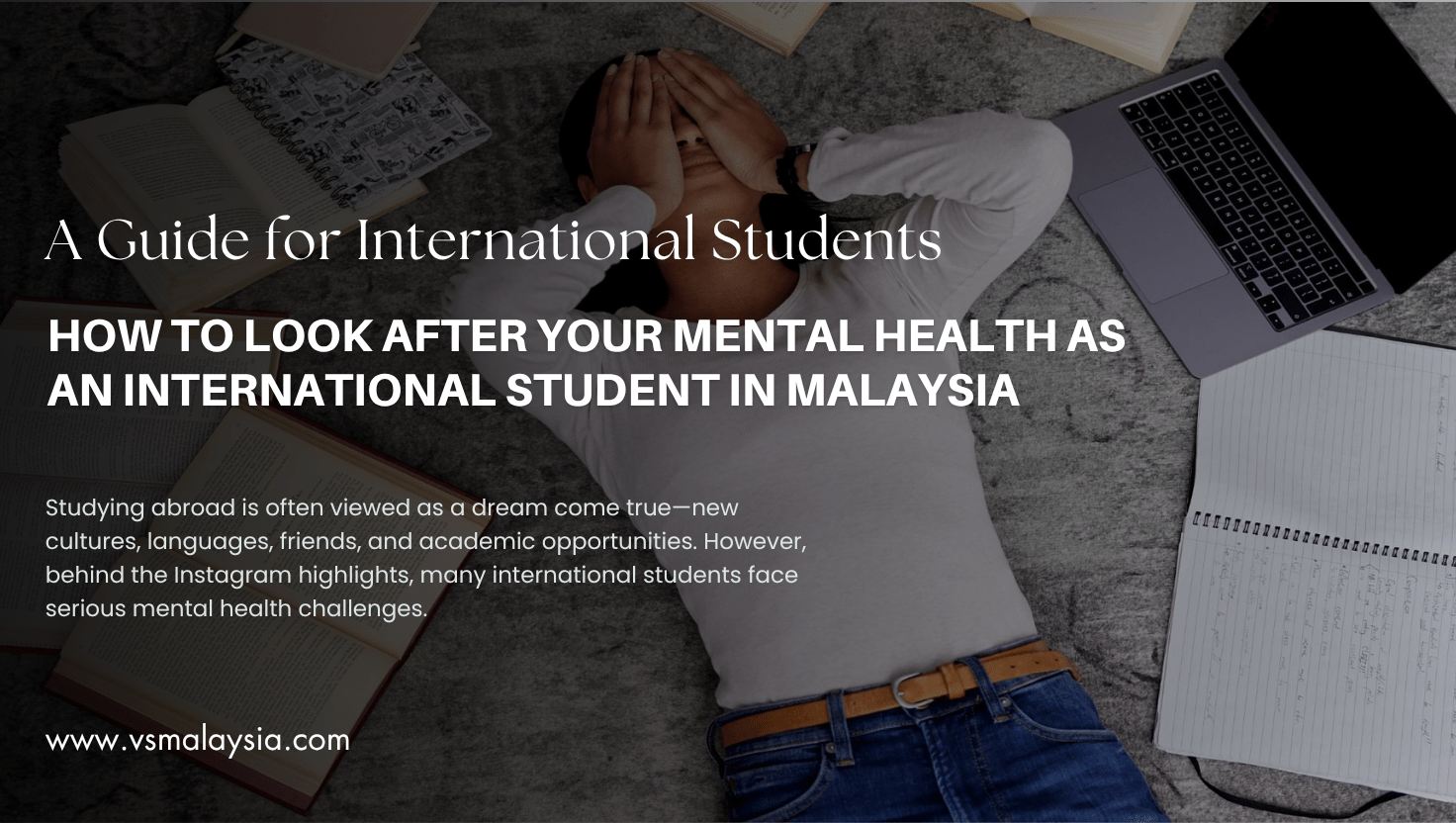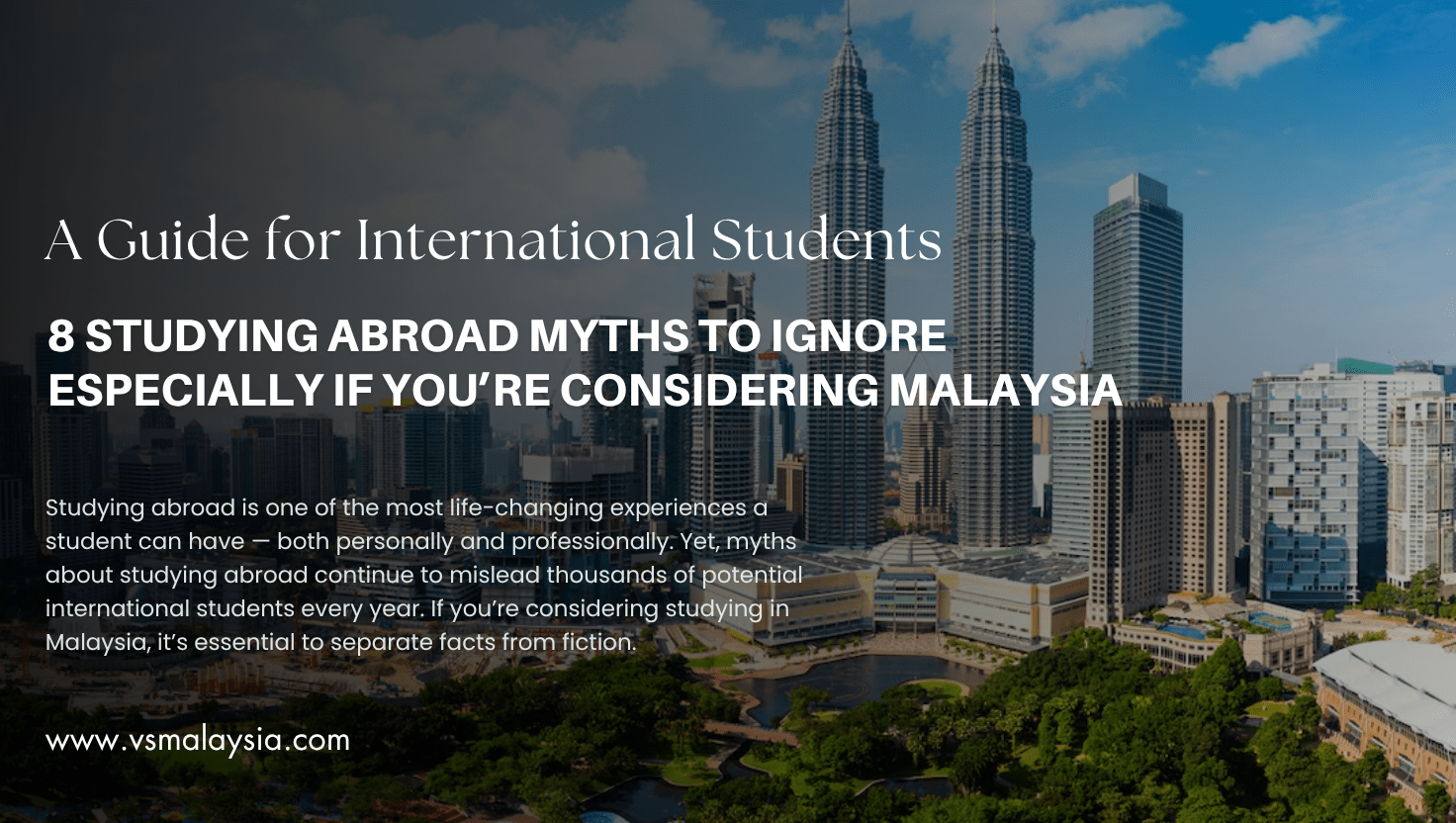Estimated reading time: 10–12 minutes
In This Guide:
-
Why Mental Health Matters for International Students
-
Challenges Faced by International Students in Malaysia
-
Recognizing the Warning Signs
-
University Support Systems in Malaysia
-
Resources Outside the University
-
Practical Self-Care Strategies
-
What to Do If You’re Struggling
-
Final Thoughts and Call to Action
Why Mental Health Matters for International Students
Studying abroad is often viewed as a dream come true—new cultures, languages, friends, and academic opportunities. However, behind the Instagram highlights, many international students face serious mental health challenges.
In Malaysia—a popular destination for international students due to its affordability, multiculturalism, and English-medium instruction—thousands of students arrive each year. While they bring hopes and ambitions, many also silently carry stress, anxiety, and feelings of isolation.
A 2022 global study published in the Journal of Affective Disorders found that 31% of international students exhibited signs of anxiety and depression, higher than their domestic counterparts. Factors like homesickness, culture shock, academic pressure, and visa-related stress contribute to these statistics.
Mental health affects academic performance, personal well-being, and long-term success. Addressing these concerns early and proactively is not just important—it’s essential.
Challenges Faced by International Students in Malaysia
While Malaysia is known for its friendly communities and student-friendly environment, international students often face unique challenges:
1. Cultural Adjustment and Language Barriers
Malaysia is multicultural, but cultural nuances can still be difficult to navigate. From food to classroom etiquette, adjusting takes time and can cause stress.
Example: A Nigerian student in Selangor might feel socially excluded when peers converse in Malay or Mandarin, even if unintentionally.
2. Financial Strain
Although Malaysia is relatively affordable, many students rely on family support or limited part-time jobs. Fluctuations in currency and unexpected expenses can increase financial anxiety.
3. Visa and Immigration Stress
Student visa renewals, work restrictions, and compliance with immigration rules can be burdensome.
4. Academic Pressure
Many students feel pressured to maintain scholarships or meet the expectations of sponsors and family back home.
5. Social Isolation
Being far from family and old friends can lead to loneliness, especially during festivals, holidays, or personal milestones.
Recognizing the Warning Signs of Poor Mental Health
Mental health issues don’t always appear suddenly. Often, they build up quietly. Here are some common symptoms to watch out for in yourself or others:
-
Persistent sadness, anxiety, or mood swings
-
Loss of interest in activities you used to enjoy
-
Sleep disturbances—insomnia or oversleeping
-
Changes in appetite or weight
-
Difficulty concentrating or making decisions
-
Withdrawing from friends or skipping classes
-
Increased use of alcohol, nicotine, or other substances
-
Thoughts of self-harm or hopelessness
If you experience one or more of these signs for more than two weeks, it’s time to seek help.
University Support Systems in Malaysia
Most Malaysian universities recognize the importance of student mental well-being and have set up services accordingly.
1. Counseling and Psychological Services (CAPS)
These departments offer confidential counseling for stress, trauma, depression, and anxiety. International students can usually access them for free.
Example: Universiti Malaya offers a Student Wellness Centre with licensed counselors who are multilingual, including English-speaking professionals.
2. International Student Office
Dedicated teams support students with orientation, housing, legal issues, and emotional well-being. They often collaborate with embassies or cultural groups for additional support.
3. Student Mentorship Programs
Many universities in Malaysia assign mentors or buddies to incoming international students. These mentors help with academic guidance and provide a friendly face on campus.
4. Workshops and Webinars
Universities often conduct webinars on stress management, time management, and coping strategies.
Tip: Check your university portal regularly for wellness events or mental health workshops.
Resources Outside the University
While universities are the first line of support, Malaysia also offers external resources for students needing extra help:
1. Befrienders KL
A non-profit organization offering 24/7 emotional support through phone, email, or in-person counseling.
-
Website: www.befrienders.org.my
-
Hotline: 03-7627 2929 (Free and confidential)
2. Malaysian Mental Health Association (MMHA)
Provides therapy sessions, support groups, and mental health awareness programs.
3. Relate Malaysia
Offers online psychological services and evidence-based therapy tailored to students and young adults.
4. Your Country’s Embassy or Student Association
Many embassies in Malaysia have welfare departments or student liaison officers. Some cultural centers also provide social gatherings and support systems.
Mental Health Self-Care Tips for International Students
While professional support is crucial, self-care is equally important in protecting your mental health. Here are practical strategies for students living in Malaysia:
1. Build a Routine
Create a daily structure—wake up, eat, study, relax, and sleep at consistent times. Predictability helps reduce stress.
2. Stay Physically Active
Join a gym, jog in nearby parks, or practice yoga. Many Malaysian universities have excellent sports facilities.
3. Eat Well
Malaysia offers a variety of food options—utilize that diversity to maintain a balanced diet. Avoid excessive fast food or sugary drinks.
4. Connect with Others
Join clubs, student groups, or cultural organizations. Making local and international friends helps combat loneliness.
Example: At UniSZA, the International Student Club organizes trips, language exchanges, and multicultural festivals that foster belonging.
5. Practice Mindfulness
Try meditation, journaling, or prayer, depending on your background. Free mindfulness apps like Insight Timer and Headspace are good starting points.
6. Limit Social Media
Avoid comparing your life with others. Take regular digital detoxes and spend time in the real world.
7. Seek Joy
Engage in hobbies—painting, dancing, cooking, or writing. These activities provide emotional release and personal satisfaction.
What to Do If You’re Struggling
If you’re overwhelmed, don’t suffer in silence. Here’s what you can do:
1. Reach Out to Someone You Trust
Talk to a friend, mentor, or professor. A simple conversation can ease your burden.
2. Use University Counseling Services
Most campuses offer free sessions. Booking one can be your first step to recovery.
3. Talk to Your Embassy
Some embassies in Malaysia offer access to in-house counselors or can recommend trusted professionals.
4. Explore Telehealth Options
If in-person therapy feels uncomfortable, consider online services like Relate Malaysia or international platforms such as BetterHelp.
5. Avoid Self-Medicating
Using alcohol, over-the-counter drugs, or other substances to cope will only worsen your condition. Choose healthy coping mechanisms instead.
You’re Not Alone
Being an international student in Malaysia can be both exciting and overwhelming. It’s important to remember that prioritizing your mental health is not a weakness—it’s an act of strength.
Every student’s journey is different, and while challenges may arise, support is always available—whether from your university, the community, or online resources.
Call to Action
If you’re an international student in Malaysia, start taking charge of your mental health today:
- Bookmark mental health resources at your university
- Join student support groups or mentorship programs
- Follow a self-care routine that suits your lifestyle
- Don’t hesitate to seek professional help when needed
Finally, share this guide with a fellow international student. You never know who might need it more than they’re letting on.











